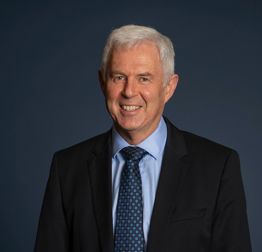As we get closer to the 2020 general election, there is increasing attention on the referendums being held at the same time. The End of Life Choice referendum gives New Zealanders the opportunity to have a say on whether they support the End of Life Choice Act 2019. This decision is of particular relevance to health practitioners, who will need to understand their obligations under the Act if it comes into force.
The Act is intended to give people with a terminal illness the option of requesting medically assisted dying. It sets out eligibility criteria and a process that must be followed to exercise that option.
Below, we have answered key questions about the Act, with a focus on what the Act will mean for health practitioners and organisations.
When does the Act come into force, and will it change before it takes effect?
Although the Act has been passed by Parliament, it is not currently in force. If the Act is supported by a majority of voters in the referendum, it will come into force 12 months after the referendum results are announced. The Act won't change in any way – unlike the Cannabis Legalisation and Control Bill (for which there is also a referendum), the Act has gone through the legislative process and is in final form.
What are the eligibility criteria?
For a person to be eligible for assisted dying, they must:
- Be 18 years or over
- Be a New Zealand citizen or permanent resident
- Suffer from a terminal illness that is likely to end their life within 6 months
- Be in an advanced state of irreversible decline in physical capability
- Experience unbearable suffering that cannot be relieved in a manner they consider tolerable
- Be competent to make an informed decision about assisted dying (ie they can understand information about assisted dying, retain and weigh that information, and communicate the decision in some way).
Whether someone meets the eligibility criteria is assessed by doctors, pursuant to the processes set out in the Act.
What do doctors need to do if a person asks for assisted dying?
Where a person asks for medically assisted dying, the Act prescribes a process that must be followed. By way of short summary:
- The Act contemplates that a person will tell their 'attending medical practitioner' if they wish to receive assisted dying. Subject to the doctor having a conscientious objection (discussed below) the attending medical practitioner must:
- give the person information about assisted dying and options for end of life care
- discuss the matter with them at regular intervals (having regard to the progress of their illness), and ensure they know they can change their mind
- encourage them to discuss the matter with others (eg family, friends and counsellors) and ensure they have an opportunity to discuss it with people of their choosing, but also let them know that they are not obliged to discuss the matter with others
- do their best to ensure that the person can make a decision free from pressure from others
- record the actions that they have taken in complying with the above requirements
- If the person wishes to proceed with assisted dying, the attending medical practitioner must:
- form an opinion as to whether the person is eligible
- if they consider the person is eligible, arrange a second opinion from an independent medical practitioner nominated by the Support and Consultation for End of Life in New Zealand (SCENZ) Group (a group established under the Act).
- The independent medical practitioner must read the person's files, examine the person, and form an opinion on eligibility
- If either or both of the attending or independent medical practitioners considers that the person's competence needs to be assessed, a psychiatrist nominated by SCENZ must also read the person's files and examine the person before forming their opinion
- If the person is eligible, then the attending medical practitioner must discuss the matter again with the person, and discuss timing for assisted dying, so that the person can decide whether or not to proceed (and if so, when). Where the person wishes to proceed, the attending medical practitioner must advise them about their options for administration of medication. Options include ingestion or intravenous delivery, in each case self-administered or administered by the attending medical practitioner or a nurse practitioner
- At the time the person has chosen for the administration of the medication, the attending medical practitioner or nurse practitioner must check to confirm the person's wishes. If the person chooses to proceed at that time, the attending medical practitioner or nurse practitioner must provide or administer the medication, and then remain available to the person (in the same room or close proximity) until the person dies.
A person can rescind their request for assisted dying at any time. Additionally, the attending medical practitioner or nurse practitioner must cease the process at any time if they suspect on reasonable grounds that the person is being pressured by another person.
At each stage of the process, there are specified forms to be completed and submitted to the Registrar for assisted dying (a new oversight role created by the Act).
What has changed since public consultation?
For a bill to become law it must pass through a series of stages. In this case, the Act underwent substantive change as it has passed through those stages, including in response to almost 40,000 submissions from the public. Of particular importance from a healthcare perspective:
- The eligibility criteria were amended. A person must now have a terminal illness to be eligible (previously a person would also be eligible if they had a 'grievous and irremediable medical condition' but that has been removed)
- The competence requirements were improved, and a new clause has been added to make it clear that mental illness, disability and advanced age are not of themselves sufficient to make someone eligible for assisted dying
- The conscientious objection provisions (discussed further below) were extended and strengthened
- The qualifications for a health practitioner to be involved in the process were amended (by way of example, where a specialist competence assessment is required, that must be completed by a psychiatrist rather than a psychologist)
- New provisions were added which make it clear that a person cannot request assisted dying by way of an advance directive (sometimes called a living will). Additionally, neither a welfare guardian nor an enduring power of attorney is permitted to request assisted dying on behalf of another person.
Are there any restrictions on who can make decisions about a person's eligibility?
Under the Act, the attending medical practitioner is defined as "the person's medical practitioner". They must be registered with the New Zealand Medical Council and have a current practicing certificate, but the Act itself does not require specific experience, specialty or expertise. However, if a doctor did not have relevant knowledge, skill or experience then that doctor would need to consult with, or refer or transfer the patient's care to, another appropriately experienced doctor. Obligations under the Code of Rights remain relevant, including the right to have services provided with reasonable care and skill and in accordance with professional and ethical standards.
The independent medical practitioner must be independent of the person requesting assisted dying and the attending medical practitioner, and must have had a medical practising certificate for at least 5 years.
Can a health practitioner volunteer information about assisted dying to a patient if they consider the patient would be eligible?
No health practitioner is permitted to initiate any discussion about assisted dying with a person to whom they are providing services, or make any suggestion that the person receive assisted dying. This prohibition overrides a health practitioner's obligation to provide information under Right 6 of the Code of Health and Disability Services Consumers' Rights. Initiating a discussion may constitute a breach of the Code and/or professional misconduct.
Does the Act address the provision of palliative care?
The Act specifically provides that none of the Act's provisions affect a doctor's duty to alleviate suffering in accordance with standard medical practice, or a person's rights to refuse treatment.
What goes on the death certificate if someone dies with medical assistance?
The medical certificate of cause of death (HP4720, previously the BDM50) must be completed by the medical practitioner or nurse practitioner who was available to the deceased person until that person died (unless the Coroner has decided to open an inquiry into the death under Part 3 of the Coroners Act 2006). In recording the cause or causes of death, the practitioner should record the terminal illness that gave rise to the person's eligibility for assisted dying, the fact that they died as a result of assisted dying under the Act, and the interval between the onset of that terminal illness and the person's death by assisted dying.
In addition to the HP4720, another form must be completed for the Registrar for assisted dying, with additional information regarding the person's death.
The Act also amends the Coroners Act, to clarify that where the death was a result of assisted dying under the Act:
- The usual duty to report deaths to the Police does not apply
- The death does not come within the meaning of a 'self-inflicted' death.
Does assisted dying affect life insurance policies?
No. The Act specifically provides that a person who dies as a result of assisted dying is takes to have died from their terminal illness (and not assisted dying) for the purpose of life insurance.
What if I object to assisted dying?
A health practitioner who has a conscientious objection to assisting a person to die is not required to provide that assistance. An employer is not permitted to discriminate against an employee or prospective employee who conscientiously objects to providing assisted dying – so disagreeing with assisted dying should not affect employment or job opportunities.
However, if a person advises a doctor that they wish to exercise the option of assisted dying, and that doctor has a conscientious objection to providing such assistance, then the doctor must tell the person of their objection and inform the person of their right to ask SCENZ for the contact details of a replacement doctor.
Are hospices or other healthcare organisations obligated to provide end of life services?
No. The Act does not require organisations to provide assisted dying services, and a recent High Court decision confirmed that they are entitled to refuse to provide such services. However, if they elect not to provide such services they may need to put processes in place to assist medical practitioners who work for the organisation to comply with their obligations under the Act (which could involve practitioners who do not have a conscientious objection providing assisted dying services outside of the organisation).
This article was written by Catherine Miller (Senior Associate), Holly Hedley (Senior Associate) and Brooke Marriner (Law Clerk).









